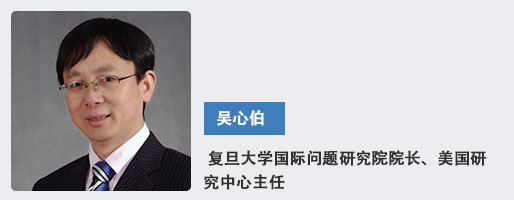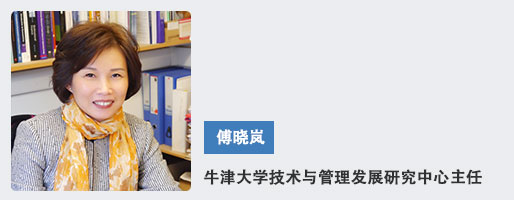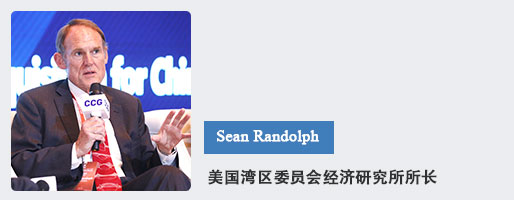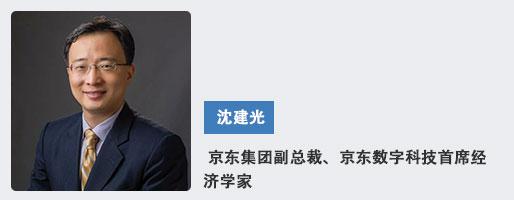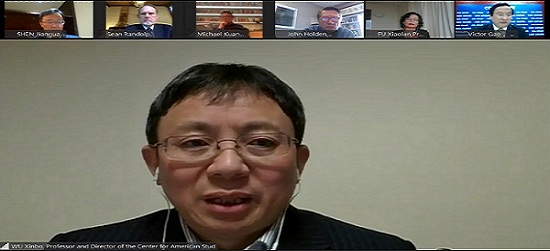
On April 29th, 2020, the Center for China and Globalization held a webinar focusing on the role of US-China technology in the COVID-19 crisis. The online dialogue brought together a group of top tech policy scholars and experts from China and the US to discuss issues concerning the development of digital applications during the crisis, governments' push to invest in digital infrastructure, and the future of innovation, which covered the following topics: 1) During the period, how did Chinese mobile apps and digital technologies in education, e-commerce, and mass entertainment cope with the sudden shock and reinvigorate growth? 2) In the aftermath of the coronavirus outbreak, Chinese government issued stimulus plans centered on “new infrastructure”. How is this “new infrastructure” drive different from the one emerged out of the 2008 financial crisis? What does China’s push to invest in its digital future mean for global business?3) What can the pandemic teach the tech communities in China and the United States? Which proposals from the business sectors will better prepare nations and economies for future health threats? and 4) Will the COVID-19 pandemic spark a worldwide tendency toward economic self-sufficiency? What will that mean for the future of innovation?
The webinar series featured Wu Xinbo (Professor, Dean of the Institute of International Studies and Director of the Center for American Studies at Fudan University in Shanghai, Member of the Policy Advisory Board, Ministry of Foreign Affairs of the People's Republic of China), Robert Atkinson(President of the Information Technology and Innovation Foundation), Fu Xiaolan(Professor and Founding Director of the Technology and Management Center for Development at the University of Oxford), John Holden(Senior Associate with the Trustee Chair in Chinese Business and Economics at the Center for Strategic and International Studies and Senior Sirector of the McLarty Associates, Victor Gao(CCG Vice President),Sean Randolph(Senior Director of the Bay Area Council Economic Institute), Michael Kuan(Founder and CEO of the Kuan Capital and CCG Vice Chair) and Shen Jianguang(Vice President and Chief Economist of JD.com) for insightful perceptions into Technology and Coronavirus: Lessons and Proposals from China and the United States.
Wu Xinbo, Professor, Dean of the Institute of International Studies and Director of the Center for American Studies at Fudan University in Shanghai, Member of the Policy Advisory Board, Ministry of Foreign Affairs of the People's Republic of China, said that "business community, scholars, scientists can work together to try and draw a line between major power competition as well as trade, investment, and technology relations between countries."He added that investment and technology would be used in major power competition, but there should be boundaries so that they would not become hostage to geopolitical competition.
Robert Atkinson, President of the Information Technology and Innovation Foundation (ITIF), highlighted "the need to digitize healthcare systems so they can be completely interoperable, with the ability to gather and analyze data, including using AI to generate insights in real-time about the pandemic." He added that the healthcare system should protect privacy, but currently lacks systems and infrastructure to do so.
Fu Xiaolan, Professor and Founding Director of the Technology and Management Center for Development at the University of Oxford, emphasized the important role of the state in promoting innovation and overcoming market failures. She explained that "the national innovation system includes not only firms and markets but also public institutions and the government. Innovation is costly and risky. Markets acting alone are not enough to effectively address the challenge."
John Holden, Senior Associate with the Trustee Chair in Chinese Business and Economics at the Center for Strategic and International Studies (CSIS) and Senior Director of the McLarty Associates, said that "American multinationals will not abandon the China market, mainly because it is going to remain profitable for them." Meanwhile, they would continue to strengthen the resiliency of their global supply chains.
Victor Gao, CCG Vice President, called for more academic and scholarly exchanges. He said that more exchange could encourage innovation and technological breakthroughs. He added that no country could erect and try to hide behind walls as if that would create a haven.
Sean Randolph, Senior Director of the Bay Area Council Economic Institute, pointed out that "technological innovation is collaborative. Companies in Silicon Valley in the US have been working closely with partners in China. Furthermore, university scientists both from the US and China also are working together, reflecting that global challenges call for global collaboration."
Michael Kuan, Founder and CEO of the Kuan Capital and CCG Vice Chair, said that "it is a good time to put the difficulties in US-China relations aside and to work together." He emphasized that "the US-China relationship is not a zero-sum game and that if the two countries could cooperate the world benefits."
Shen Jianguang, Vice President and Chief Economist of JD.com, said that "China has applied artificial intelligence, big data and other technologies to promote the development of e-commerce and effectively stimulated the development of various economic activities during COVID-19 crisis. The rapid development of the digital economy will create opportunities for further cooperation between China and other countries after the pandemic."
Online Video Clips of the Webinar Series: http://v.qq.com/x/page/h0959jeecnp.html

